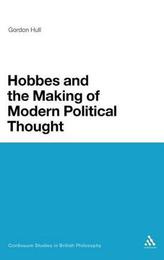
|
Hobbes and the Making of Modern Political Thought
Hardback
Main Details
Description
Hobbes and the Making of Modern Political Thought considers what it is that makes the study of Hobbes so compelling. Gordon Hull reads Hobbes as the first 'modern' political philosopher. In Hobbes we find the combination of an anomalous and anachronistic view of geometry and a radical, almost post-modern understanding of language. After situation Hobbes against the late scholastic and Machiavellian traditions against which he wrote, the book studies Hobbes's neglected writings on mathematics and language. That analysis then motivates a rereading of his famous pronouncements about the state of nature and the absolutist state that is supposed to be its remedy. The book concludes by showing the relevance of Hobbes to contemporary debates around the radically democratic potential of the 'multitude'. Hobbesian thought is the opposition point in these debates; what emerges here is that Hobbes is very much still with us. As a theorist who is interested in managing and channelling the productive energies of the population, Hobbes emerges as the first theorist of what we now call biopolitics.
Author Biography
Gordon Hull is Assistant Professor of Philosophy at the University of North Carolina at Charlotte, USA.
Reviews"Gordon Hull's book is a clearly written and thoroughly argued account of the emergence of modern political thought in the figure of Hobbes. By tracing themes such as construction, analysis, signification, and imagination, Hull shows the moment of creation of a truly modern political philosophy. This book is rich in historical details and has the added benefit of treating Hobbes's philosophy as a whole, bringing questions of method, logic, physics, and geometry to bear on Hobbes's political thought. This is an extremely important contribution to the interpretation of Hobbes and to the larger field of political theory." - Richard A. Lee, Jr., DePaul University, USA
|